An Analysis of Financial Affairs in the Musical Drama, “Nashville”
by Mike Dang and Logan Sachon
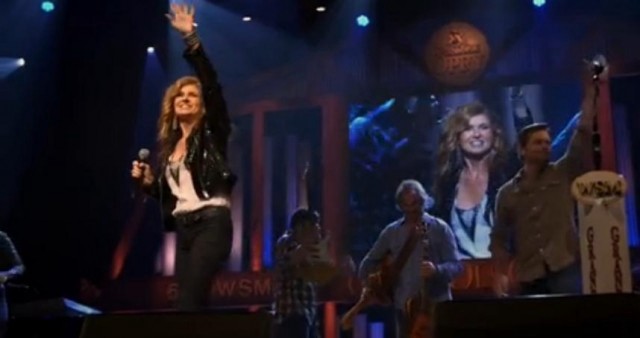
If you haven’t yet seen or heard of the show Nashville, it’s basically about a 40-year-old country western superstar named Rayna Jaymes (Connie Britton of Friday Night Lights fame) who is slowly fading in the shadow of a young country popstar named Juliette Barnes (Hayden Panettiere), who’s a mix between Carrie Underwood and Taylor Swift, but the version of Swift who wears short skirts and is cheer captain in the “You Belong With Me” music video.
Nashville is also a show about money — nearly all the plot points are driven by it. Rayna’s husband Teddy Conrad depends on his wife’s salary, and struggles with the idea that he isn’t a provider. Deacon Clayborne, Rayna’s lead guitarist and former lover, gives up many lucrative career options to stay near Rayna. Juliette’s mother is always asking her for money. Rayna’s father, Lamar Wyatt, is a wealthy and powerful figure in Nashville who loves to control people with his checkbook.
Here are five money-driven plot points from the first episode of the show, and our analysis of them.
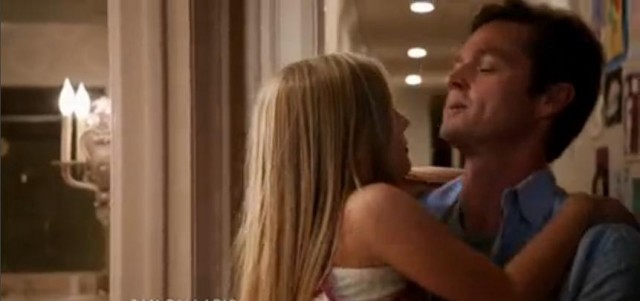
Scenario One: In the opening scene, Rayna is scrambling out the door to perform at a concert, and her daughters ask, “Why does she have to go to work? I thought we were rich?” Rayna’s husband Teddy explains that the family is “cash poor” and then says, “It’s bad manners to talk about money.”
Mike’s Take: If it’s bad manners to talk about money, I must have the worst manners on the planet. I like that Teddy uses the term “cash poor,” but then doesn’t explain to his daughters what being cash poor actually means, which is basically that the family has a lot of assets (their Nashville home is huge), but that they don’t have very much money in the bank. Here was a really nice “real talk” moment Teddy could have had with his daughter about money, but instead he’s instilling this idea in his kid that talking about money is taboo.
When I was a kid, my parents talked about money all the time, mostly because we didn’t have very much of it. They wanted me to understand why I couldn’t have things other kids had, and why we went shopping for clothes and furniture at secondhand stores and swap meets instead of the mall. They never sat me down to explain about saving or credit cards or IRAs to me, but they never avoided discussions about money when it came up either. I think this grounded me, and is part of the reason why I’m the person I am today — which is, a person who is always keenly aware of what I have and how much I’m spending.
Logan’s Take: I thought it was more interesting that the kids would know they were rich — the American way is that everyone considers themselves middle class. Also have you seen those two little girls sing “Call Your Girlfriend?” A+.

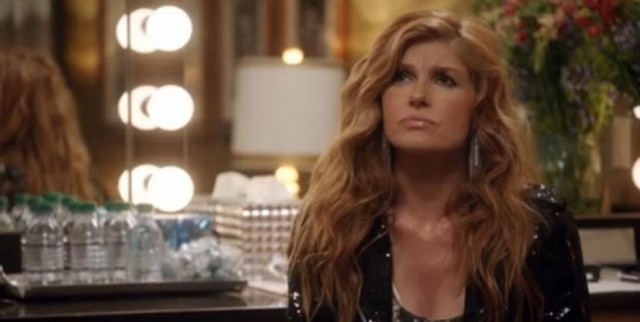
Scenario Two: Rayna learns from her record company that her newest album hasn’t charted as well as she has hoped, and that she’s not bringing in enough money to support a large tour. The record company informs Rayna that they’d like her to combine her tour with that of Juliette Barnes, which would save on tour costs and sell more tickets. Rayna balks at the idea, but is told if she doesn’t do it, the label will stop promoting her record.
Mike’s Take: I think it’s interesting that in the first scene, it’s established that Rayna has to work to provide for the family (and she often talks about how she has two little girls she needs to take care of back at home), but she won’t do it at the expense of her ego (though I’m sure Martina McBride or Faith Hill or another aging country superstar wouldn’t want to open for Taylor Swift either). Rayna’s had a solid two-decade career, but she’s not ready to to pass on the torch to the next generation of country stars yet. I’m trying to think of a situation where I turned down a paying gig I needed because of my ego, but can’t think of one. Of course, I’m also not a big name who has many other options, either.
Logan’s Take: I think this is just smart thinking. Her ego knows what’s up. If she became an opening act for a tween, that would DIMINISH HER BRAND and LOWER HER VALUE.

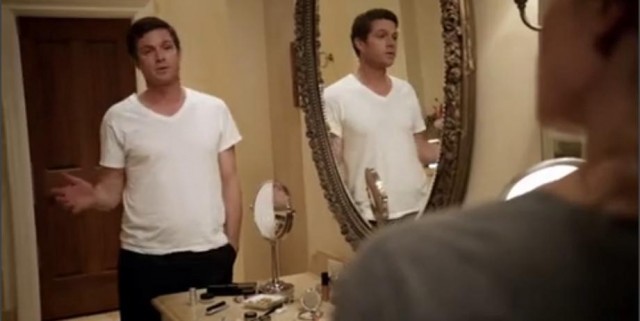
Scenario Three: Rayna tells Teddy that her record and tour isn’t selling, and that the label wants her to open for Juliette Barnes, which she thinks is a terrible idea (because of her ego). Teddy suggests that Rayna can solve this problem by borrowing money from her father. “I’m not going to use my daddy’s money, you know that,” she responds. “I’d rather wait tables, than do that. I’ve worked very hard not to be my sister, who’s practically my daddy’s handmaid.” Teddy replies, “Your sister is going to take over the damn family business. When he dies, she’s going to be the most powerful woman in the state.”
Mike’s Take: As someone who doesn’t like to depend on other people for money, I’m siding with Rayna on this one. I think there are situations where you can set aside your ego and graciously accept help from people who genuinely care about you, but Rayna’s father is the sort who only lends out money with strings attached to them, and forget that. The best thing about earning your own money and paying your own bills is that nobody can tell you what you can or cannot do with your money or your life.
I also think it’s interesting that Teddy’s advice to Rayna is to borrow money from her wealthy father, instead of coming up with a plan to cut their expenses, liquidate their assets, or downsize their home, although I get that rich people like to keep up appearances. Also, Rayna’s being a little hard on her sister, right?
Logan’s Take: Her dad is scary. That’s like borrowing money from the mob. So I’m with Rayna. Although I do love Teddy’s instinct to do the easiest thing. BEEN THERE.

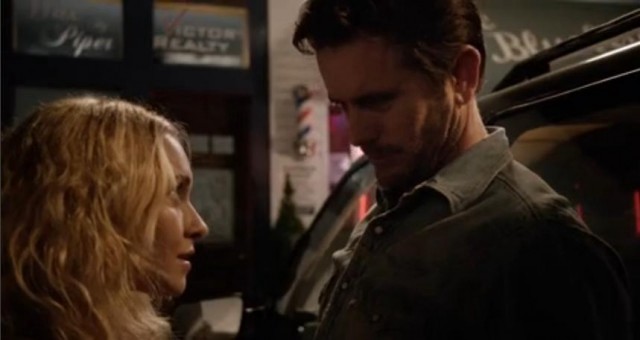
Scenario Four: Juliette Barnes approaches Deacon Clayborne in a parking lot outside The Bluebird, a popular music club where musicians often come to play their music. She’s impressed by Deacon’s talent and offers him double whatever Rayna is paying him to work on her tour. “I can’t do that to Rayna,” he says.
Mike’s Take: Oh, to have someone love you so much that he or she is willing to give up lucrative career options to stand by you. Except, Rayna’s married with two children and Deacon is still clearly and openly still in love with her, which is problematic, even if it offers a nice little love triangle for the show.
In real life, this is called poaching. Once you’ve become the sort of person that other companies want to woo and poach, you know you’ve made it. But it’s still a tough decision — especially if you really love your job. Would you leave a job you love and that paid you decently if another company offered you double to quit and join them? It would all depend on the circumstances, of course. Money is only part of the equation of having a career you’re happy with.
Logan’s Take: Love > money, now and forever (syke, spoiler alert).

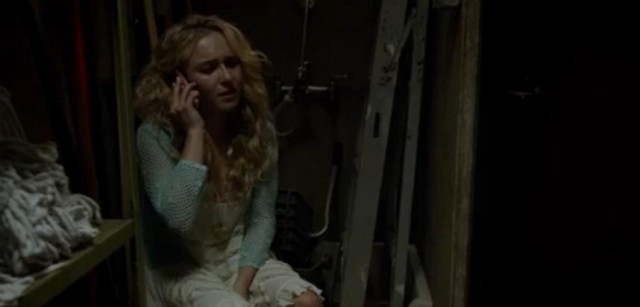
Scenario Five: Juliette Barnes is crying in a broom closet. Her mother is on the phone asking her to give her money, which Juliette suspects is for drugs. “You’re using, I can hear it in your voice,” she says, and hangs up.
Mike’s Take: I’m always siding with Tami Taylor, AKA Rayna Jaymes while watching Nashville, but I sympathize a lot with Juliette in this situation. Well not exactly, because my parents are drug-free, but I understand how difficult it is to say no when a family member asks you for money. Juliette’s obviously doing the correct thing by not giving money to someone who will use it on drugs. Maybe she’s tried this offscreen, but if I were Juliette I would say, “Yes, you can totally have some of my money! As long as you check yourself into a rehab program and get some help.” Of course, I know it’s not as easy as that. There’s a lot of denial involved, and she’s not suddenly going to be like, “okay!,” and check herself into the Betty Ford Center.
Logan’s Take: I liked this scene because it showed that Juliette was going to be a Real Person rather than just the Hot Young Nemesis. But also yes, it seems like she should have been able to pay some amount of money to Make That Problem Go Away. That sounds like murder. I don’t mean murder. I mean … sending the mama to go somewhere safe. I WONDER WHAT WILL HAPPEN.
Support The Billfold
The Billfold continues to exist thanks to support from our readers. Help us continue to do our work by making a monthly pledge on Patreon or a one-time-only contribution through PayPal.
Comments